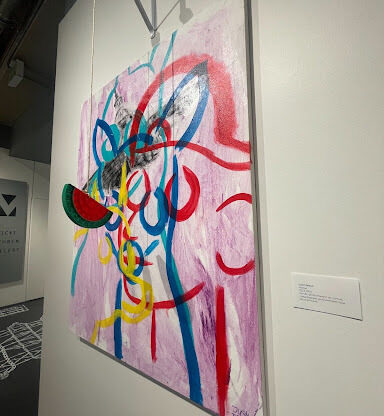[SPOILERS INCLUDED]
Olivia Wilde’s “Don’t Worry Darling” opened on Sept. 23, 2022, amassing $19 million at the United States box office. Public controversy surrounding Olivia Wilde, Harry Styles and Florence Pugh only ramped up the excitement and intrigue over “Don’t Worry Darling.” We can attribute some of the success of the movie to the saying “all publicity is good publicity.” Critics were far from impressed though, only accumulating a mere 38% on Rotten Tomatoes.
Some of the beautiful aspects of “Don’t Worry Darling” include the production and costume design. Audiences have cinematographer Matthew Libatique to thank for the eerie, utopian Los Angeles compound The Victory Project is housed in. Ariannae Phillips transported audiences to the 1950s with a wardrobe of polished, traditional style. These aspects of this 1950s horror drama really heighten the supposedly thrilling experience of Wilde’s second feature. Wilde had a grandiose image she wanted to portray in the film; but leaving the theater, there is a realization of emptiness. This contradicts the visuals and presumed intensity of the plot presented. Wilde was able to get one of her points across in this feature, but at what cost?
“Don’t Worry Darling” left a lot to be desired outside of public controversy and beautiful visuals. There was this consistent lack of emotion and heart within its contents that made it hard to become immersed in the world of the movie. It’s hard when such a visually stunning and gripping movie has such little to convey by the end of its runtime.
Florence Pugh’s performance as Alice held the film together. She understood the intensity of her character and the overwhelming anxiety consuming her day-to-day life in The Victory Project. She was the only tether to the believability of the characters in this world they had created. There were moments where the delivery of the dialogue made the scenes feel like part of a completely different movie.
As for Harry Styles, his performance as Jack was not the most palatable and it is very easy to see the lack of coaching he got for this particular role. I will not judge his entire future in acting based on this role alone; I find it unfair as he is in a transitional period.
The pacing was one of the biggest sore spots in “Don’t Worry Darling.” The lack of cohesive pacing in the movie limited the experiences of suspense and thrill at some of the most poignant plot points. There is a solid thirty minutes of near-pointless dialogue while Alice, Bunnie, and Peg are shopping and sipping on cocktails.
The purposeful nature of vagueness in the plot and theme feels damaging to this film. It feels like Wilde is trying to tackle inherently feminist themes and ideologies throughout the course of this movie but misses each note completely with contradictions. Yes, the women at the end of the film overcome the male supremacist ideals they were introduced to, but there doesn’t feel like any thematic playoff. It doesn’t feel powerful or impactful. It almost feels like it is mocking the nature of Alice’s character.
While some of the main themes of the film seem to be the weaponization of femininity and the fears of male supremacy, Wilde doesn’t seem to handle it well in the execution. Wilde’s character is justified in her gaslighting and manipulation of Alice in The Victory Project, as she has known the truth the entire time. This contradicts the purpose of Alice’s character, who is supposed to find the flaws and cracks of this utopia she is in.
The only scene that really mirrors and haunts real-life experiences in a male-dominated society is when Jack is nominated to the executive board. During this scene, we see Jack dancing and having the time of his life with Frank (played by actor Chris Pine) while everyone cheers him on. It continually cuts between Jack’s success and Alice, who is spiraling in the bathroom and having a panic attack.
“Don’t Worry Darling” doesn’t make any earth-shattering conclusions or discoveries. The end of the movie is abrupt and throws you out of the theater as quickly as it threw you in. Alice discovers the truth about the utopian facade she was living in and manages to escape…and then the credits roll. The movie does what it sets out to do, dismantle this fantasy that is The Victory Project, but that’s all it does. Wilde’s directorial debut, Booksmart, highlights her talents and strengths as a director in a much better light.
Overall Rating: 2.5 out of 5.











